What is Anthony Joshua's Record?
Anthony Joshua's record currently stands at 28 wins, 4 losses, and 0 draws. Of those 28 wins, he has stopped 25 of his opponents, so his current knock-out ratio is 89%. Of his 4 losses, he's been stopped 2 times. He's boxed a total of 167 rounds, meaning his professional fights last 5.2 rounds on average.
When was his last fight and how active is he?
Anthony Joshua's last fight took place against Daniel Dubois on September 21, 2024, in London, United Kingdom. He lost by knockout in the 5th round. That fight was 9 months and 27 days ago.
Joshua's last 5 fights have come over a period of 2 years, 1 month and 1 day, meaning he has been fighting on average every 5 months and 1 day. In those fights, he fought a total of 38 rounds, meaning that they have lasted 7.6 rounds on average.
What belts does Anthony Joshua hold?
He won a vacant WBA Interim World Super Welterweight belt against Yoenis Tellez, beating him by unanimous decision after 12 rounds on March 1, 2025. He has held this belt for a total of 139 days (4 months and 17 days) and is yet to make a defense of the belt. His first mandatory for his WBA belt is due against Jesus Ramos.
How Old Is Anthony Joshua And Where Is he From?
The heavyweight is currently 35 years old. He was born on October 15, 1989, so he will turn 36 in 2 months and 27 days.
Joshua was born in the United Kingdom.
How long has Joshua been fighting?
Anthony Joshua made his professional debut in October 2013, so he has been a pro for 11 years and 9 months.
How good is he?
Joshua is currently ranked 5th by The Ring, 6th by the WBO, 5th by the IBF and 2nd by the WBC at Heavyweight.
How tall is Joshua, What is his Reach And Which Stance Does he Use?
Joshua is 6' 6" tall, which is 198cm. His reach is 81.9 inches, which is 208 cm. Joshua fights from a traditional orthodox stance, which means he favours his right hand as his power hand when fighting.
What are some potential opponents for Anthony Joshua?
Some potential future fights for Joshua include Tyson Fury, Deontay Wilder, Hughie Fury, Filip Hrgovic and Dillian Whyte.
What will be Anthony Joshua's Next Fight And Where Can I Watch It?
Anthony Joshua doesn't currently have a fight scheduled.
Some potential future fights for Joshua include Tyson Fury, Deontay Wilder, Hughie Fury, Filip Hrgovic and Dillian Whyte.
In the UK you can usually stream Joshua's fights on DAZN PPV.
In the US you can usually stream Anthony Joshua's fights via DAZN PPV.
What are some recent Anthony Joshua results?
Joshua has beaten 4 of his last 5 opponents, stopping 3 of them, going the distance once.
In his last fight, he lost to Daniel Dubois on September 21, 2024, by knockout in the 5th round in their IBF World Heavyweight championship fight at Wembley Stadium, London, United Kingdom.
Prior to that, he had won against Francis Ngannou on March 8, 2024, by knockout in the 2nd round at Kingdom Arena, Riyadh, Saudi Arabia.
Going into that contest, he had beaten Otto Wallin on December 23, 2023, by technical knockout in the 5th round at Kingdom Arena, Riyadh.
Before that, he had defeated Robert Helenius on August 12, 2023, by knockout in the 7th round at O2 Arena, Greenwich, United Kingdom.
He had won against Jermaine Franklin on April 1, 2023, by unanimous decision in their 12 round contest at o2 Arena, London.
Anthony Joshua Stats
| Age | Date Of Birth | Nationality | Height | Reach | Stance | Weight Division |
| 35 | October 15, 1989 | United Kingdom | 198 cm | 208 cm | orthodox | Heavyweight (200+ lb) |
Anthony Joshua Record
| Professional Record | Wins | Wins By KO | Knockout Percentage | Losses | Losses By Stoppage | Draws | Pro Rounds | Debut |
| 28-4-0 | 28 | 25 | 89% | 4 | 2 | 0 | 167 | 2013 |
Anthony Joshua Rankings
| Weight | The Ring Magazine | WBC | IBF | WBA | WBO |
| Heavyweight | 5 | 2 | 5 | - | 6 |
Anthony Joshua Recent Contests
| Date | Opponent | Result | Replay | Venue |
| 2024-09-21 | Daniel Dubois | Lost (KO 5) | | Wembley Stadium, London, United Kingdom |
| 2024-03-08 | Francis Ngannou | Won (KO 2) |
watch replay
| Kingdom Arena, Riyadh, Saudi Arabia |
| 2023-12-23 | Otto Wallin | Won (TKO 5) |
watch replay
| Kingdom Arena, Riyadh, Saudi Arabia |
| 2023-08-12 | Robert Helenius | Won (KO 7) |
watch replay
| O2 Arena, Greenwich, London, United Kingdom |
| 2023-04-01 | Jermaine Franklin | Won (UD 12) | | o2 Arena, London, United Kingdom |
| 2022-08-20 | Oleksandr Usyk | Lost (SD 12) |
watch replay
| Jeddah Superdome, Jeddah, Saudi Arabia |
| 2021-09-25 | Oleksandr Usyk | Lost (UD 12) |
watch replay
| Tottenham Hotspur Stadium, London, United Kingdom |
| 2020-12-12 | Kubrat Pulev | Won (KO 9) |
watch replay
| Wembley Arena, London, United Kingdom |
| 2019-12-07 | Andy Ruiz Jr | Won (UD 12) |
watch replay
| Diriyah Arena, Diriyah, Saudi Arabia |
| 2019-06-01 | Andy Ruiz Jr | Lost (TKO 7) |
watch replay
| Madison Square Garden, New York, United States |
| 2018-09-22 | Alexander Povetkin | Won (TKO 7) | | Wembley Stadium, London, United Kingdom |
| 2018-03-31 | Joseph Parker | Won (UD 12) | | Principality Stadium, Cardiff, United Kingdom |
| 2017-10-28 | Carlos Takam | Won (TKO 10) |
watch replay
| Principality Stadium, Wales, United Kingdom |
| 2017-04-29 | Wladimir Klitschko | Won (TKO 11) |
watch replay
| Wembley Stadium, London, United Kingdom |
| 2016-12-10 | Eric Molina | Won (TKO 3) | | Manchester Arena, Manchester, United Kingdom |
| 2016-06-25 | Dominic Breazeale | Won (TKO 7) |
watch replay
| The O2 Arena, London, United Kingdom |
| 2016-04-09 | Charles Martin | Won (KO 2) | | The O2 Arena, London, United Kingdom |
| 2015-12-12 | Dillian Whyte | Won (TKO 7) |
watch replay
| The O2 Arena, London, United Kingdom |
| 2015-09-12 | Gary Cornish | Won (TKO 1) | | The O2 Arena, London, United Kingdom |
| 2015-05-30 | Kevin Johnson | Won (TKO 2) | | The O2 Arena, London, United Kingdom |
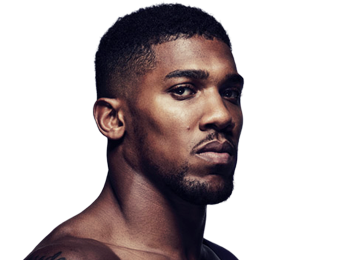





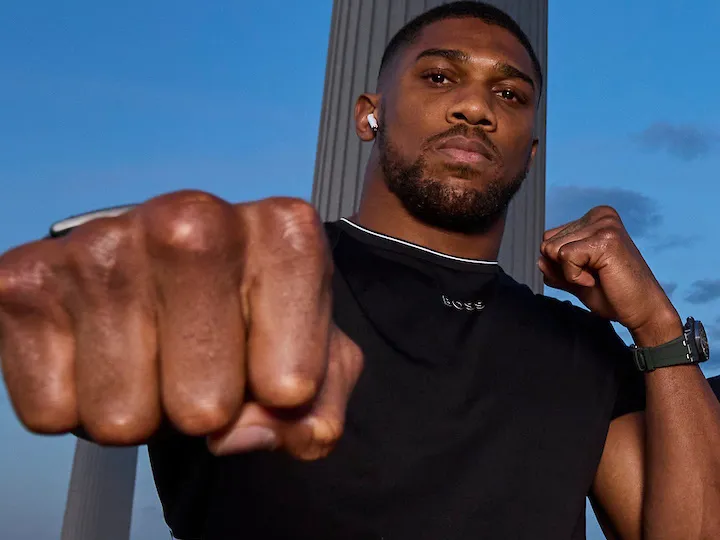
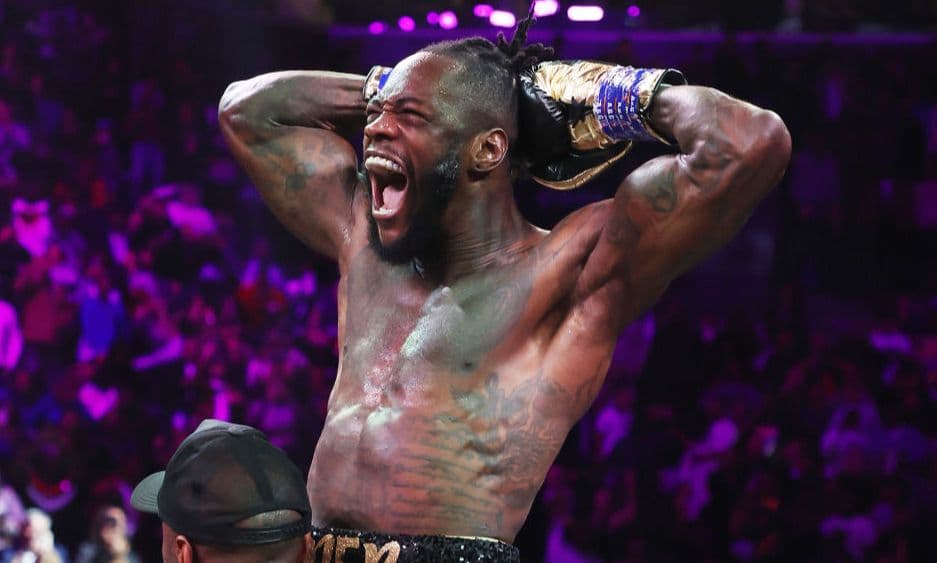
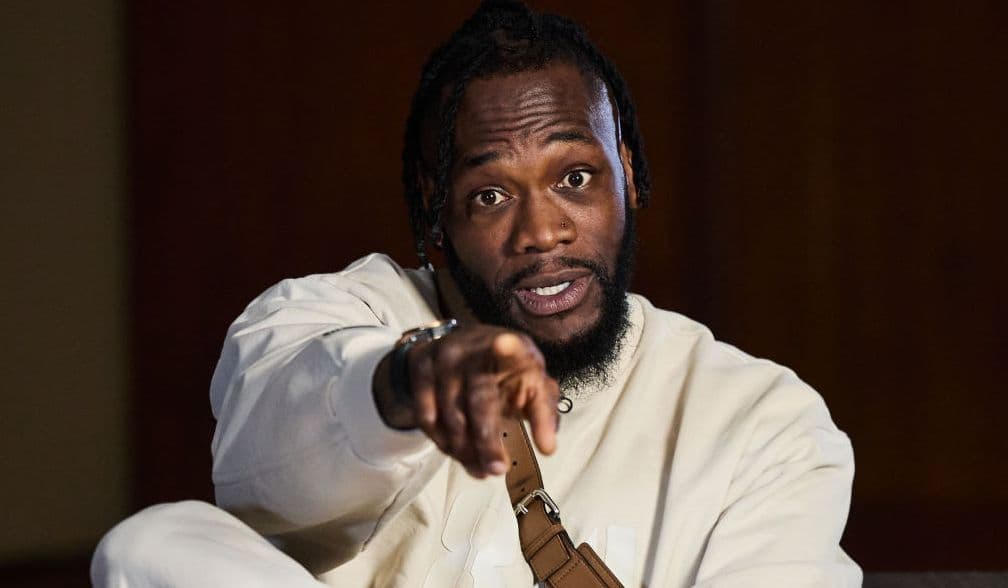


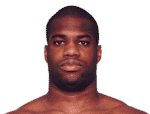
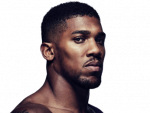
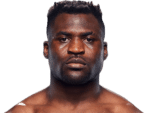


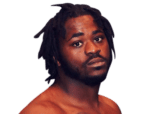
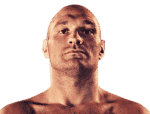

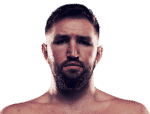
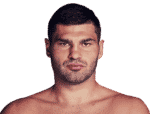
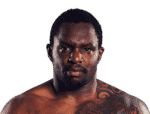




Luv him such a nice fella met him once when he came in to my work place